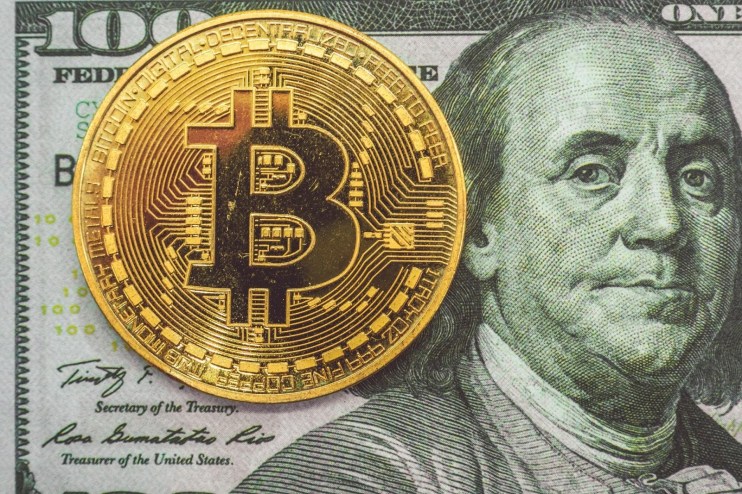Fed maintains monetary policy that helped bitcoin grow as BTC’s decentralization improves

CryptoCompare data shows the price of Bitcoin (BTC) moved from around $34,000 to a low under the $30,000 mark before the cryptocurrency’s price recovered. It’s now trading at $34,000. BTC has been ranging between $30,000 and $40,000 for about a month now.
Ether (ETH), the second-largest cryptocurrency by market capitalization, started the week above $1,400 but dropped to little over $1,200 before recovering. It’s now trading at $1,350 as traders are seemingly moving toward alternative cryptocurrencies.
This week the Federal Reserve, the central bank of the United States, revealed it was holding benchmark interest rates near zero following the conclusion of a two-day meeting, and said it would continue to buy at last $120 billion of bonds each month “until substantial further progress has been made toward the Committee’s maximum employment and price stability goals.”
In a statement, the Federal Open Market Committee said:
· “These asset purchases help foster smooth market functioning and accommodative financial conditions, thereby supporting the flow of credit to households and businesses.”
Keeping interest rates low makes borrowing cheaper and disincentivizes savings, leading more people to go out and spend, stimulating the economy. For the cryptocurrency world, this means some investors turn to Bitcoin as a store of value. Gold also sees inflows as investors choose historically safe assets.
Ultra-low interest rates mean interest-being investments like bonds barely generate interest, and are much less attractive. Lower interest rates are also associated with higher inflation, and the Fed’s bond-buying strategy has seen some use BTC to hedge against potential inflation and currency debasement.
These policies are believed to have helped Bitcoin grow as an asset as investors look for safe havens and ways to diversify their portfolios. Some of the largest university endowment funds in the U.S. have reportedly been quietly buying bitcoin for the past year through accounts at Coinbase and other cryptocurrency exchanges.
Harvard, Yale, Brown and the University of Michigan as well as several other colleges have reportedly been buying up bitcoin directly from exchanges after several Ivy League endowments took an interest in blockchain technology via a crypto-focused venture back in 2018.
Other organizations that keep on investing in cryptocurrencies include the Chicago-based Rothschild Investment Corporation, which has increased its bitcoin exposure by buying up more shares in the Grayscale Bitcoin Trust (GBTC), and Union Square Ventures, which is set to allocate “around 30%” of a new $250 million investment fund to the cryptocurrency space.
While the Federal Reserve’s policy is being maintained, the lead maintainer of Bitcoin Core, Wladimir van der Laan, has decided to step back and adopt “even more” of a “background role” in a bid to help further decentralized the project. Bitcoin Core is the key software behind the Bitcoin network, and van der Laan’s influence is seen by some as that of a leader. Laan himself wrote he has become a sort of “centralized bottleneck.”
India Plans to Introduce Bill Seeking to Ban Cryptocurrencies
India is, meanwhile, reportedly planning to introduce a bill seeking to ban all private cryptocurrencies in the country during the budget session of parliament.
The proposed legislation would provide a framework for the creation of an official digital currency issued by the country’s central bank, the Reserve Bank of India, and allow specific exceptions to promote blockchain technology and its uses.
The Reserve Bank of India is looking into the need for a digital version of the country’s fiat currency, and how to implement it. The bill comes after the country’s Supreme Court overturned a ban on crypto transactions following a lawsuit from the crypto community.
India’s proposed crackdown comes in contrast to the words of Visa CEO Al Kelly, who said the payments giant is in a position to make cryptocurrencies more “safe, useful and applicable,” and could even add them to the company’s payments network. Kelly, speaking on the company’s fiscal first-quarter 2021 earnings call, described bitcoin as “digital gold.”
The CEO added, however, that cryptocurrencies like bitcoin are “not used as a form of payment in a significant way at this point,” and said the company’s strategy is to work with wallets and exchanges to “enable users to purchase these currencies using their Visa credentials or to cash out onto our Visa credential to make a fiat purchase at any of the 70 million merchants where Visa is accepted globally.”
Francisco Memoria is a content creator at CryptoCompare who’s in love with technology and focuses on helping people see the value digital currencies have. His work has been published in numerous reputable industry publications. Francisco holds various Cryptocurrencies but has no bias in his writing.
Crypto AM: Market View in association with Ziglu
